Since taking office in 2017, Donald Trump and his administration have made a mockery of the EPA and U.S. environmental policy. Trump has appointed industry toadies such as disgraced former EPA head Scott Pruit and current EPA administrator and former coal industry lobbyist Andrew Wheeler. The administration has rolled back one bedrock environmental policy after another, repealing protections under the Clean Water Act, eliminating the Stream Protection Rule, weakening landmark protections under the National Environmental Policy Act, attempting to push through controversial fossil fuel projects such as the Keystone XL and Dakota Access Pipelines, and much more. Now, the Trump administration is poised to greenlight Pebble Mine, which would destroy large swaths of Bristol Bay and possibly permanently extinguish the planet’s largest and most productive salmon fishery, which is a $1.5 billion dollar per year annual economic engine for the state of Alaska, provides over 14,000 jobs, and on which 30 native cultures depend for their survival and their cultural identity.
Pebble Mine was formally blocked by the EPA in 2014, after years of scientific examination, economic analysis, consultation with Alaskan communities, and comments from hundreds of thousands of Americans asking the government to preemptively stop the mine led the EPA to formally block mining in the region under the powers granted to it by the Clean Water Act.
As Hatch Magazine noted in 2018, under the previous administration, “the EPA decided what virtually everyone—save for a few Bond-style villains heading foreign mining companies, their lobbyists and investors—already knew: that constructing the largest open-pit mine in North America, one of the largest mines in the entire the world, one that would include a massive tailings dam that would need to contain an enormous lake housing 1.1 billion tons of toxic mining waste forever (despite the fact that Pebble is currently projected to only provide jobs for 20 years), in an area prone to massive earthquakes was an incredibly—no, monumentally—stupid idea.”
The Trump administration formally resurrected the once dead mining project—which aims to ultimately extract an estimated 11 billion tons and $500 billion worth of gold, copper and molybdenum from the earth beneath the headwaters of the Kvichak and Nushagak rivers in Bristol Bay, Alaska—in 2019 when the U.S. Army Corps of Engineers (USACE) released a draft environmental impact statement that was immediately ridiculed for its bad science, short-sightedness, and incompleteness. Last night, the administration finalized that analysis with the release of its final environmental impact statement (EIS) on the proposed Pebble Mine.
According to a coalition of commercial fishing, economic interests and native associations, the EIS is fundamentally flawed,“ignores science and does nothing to address comments filed by tens of thousands of people who all know the truth: the proposed gold and copper mine will devastate Bristol Bay’s waters and its world-class fishery.”
The administration’s EIS has been sharply criticized for failing to address the entire scope of the project, despite the fact that the corporate partnership driving the Pebble project has indicated that it intends to develop the deposit to its full potential. Still, the EIS indicates that greater than 191 miles of streams and 4,614 acres of wetlands would be impacted if even the first phase of the proposed mine advances. Almost 2,300 acres of wetlands and waters, and 105 miles of streams would be permanently destroyed.
“Granting this permit would hand over the keys to America’s most valuable salmon fishery to a foreign-owned company with no history of successfully developing or operating a mine,” said Simon Perkins, president of The Orvis Company. “The proposed Pebble mine represents not only a direct threat to the fishery, but also a significant threat to the outdoor economy and commercial fishing industry, which so many businesses and communities in Bristol Bay and nationally rely on for financial security. If we care about American jobs, industry, environment, and culture, the only reasonable option at this point is to deny the permit.”
“The Bristol Bay region is the crown jewel of America’s fishing. It’s an economic powerhouse,” said Chris Wood, CEO of Trout Unlimited. “All we need to do to keep it intact is to have the wisdom to leave it alone.”




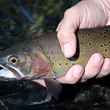
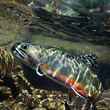
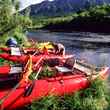
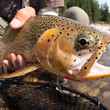
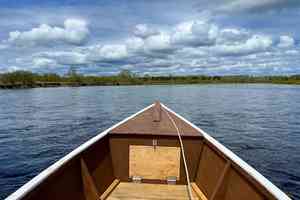



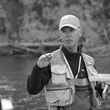
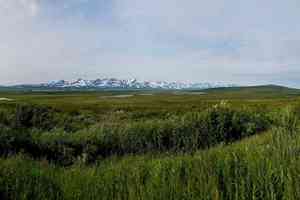

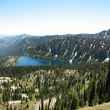
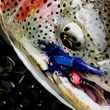
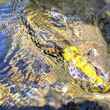




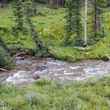




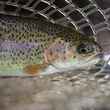
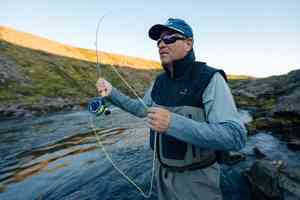



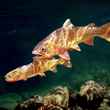
Comments
Robert A. Peinert Jr MD replied on Permalink
I am shocked that the White House would allow a foreign company ,which would not be subject to OUR LAWS, when the inevitable pollution takes place, to erect this monstrosity on OUR lands.I do believe in using our national resources but in this instance I do not see any national goal, national need or national reason for this corporate boondoggle. The beneficiaries are Canadians and the temporary workers who build the operation. What does the American People get out of this? NOTHING expect the cost in tax payers funds to clean up the site after the pollution containment and company run systems fail and destroy the environment!!! Notice on thing here: there is no Trump resort and golf course anywhere nearby!!!!!
Paul Ahart replied on Permalink
Sadly, without regime change in Washington, I don't think any amount of small donations and letters condemning the Pebble Mine will do any good. The Trump administration and the grifters it employs, think of nothing but money, mainly for themselves and their financial backers. The value of this fishery, the people whose lives it supports sustainably, and the pristine environment in Alaska, mean less than nothing to them; all that matters is money, the more the better as quickly as possible.
People need to get out and vote like their lives depended on it, which is exactly the way it is.
Scott Larson replied on Permalink
Which company(s) would profit from this mine?
Pages